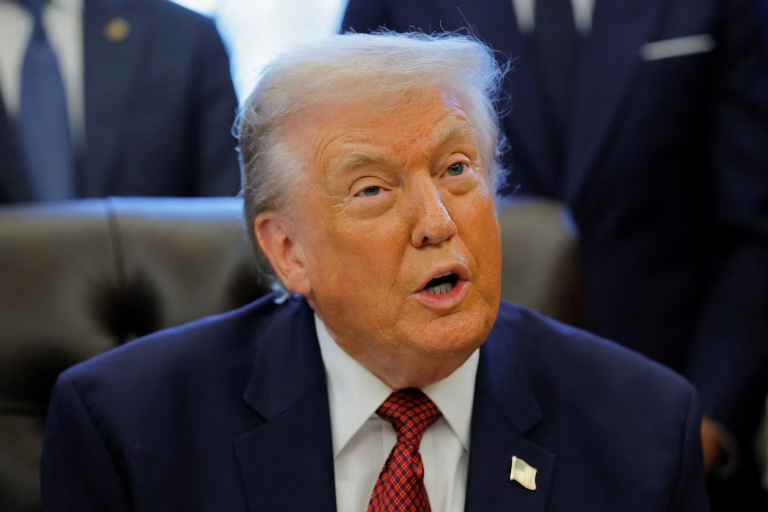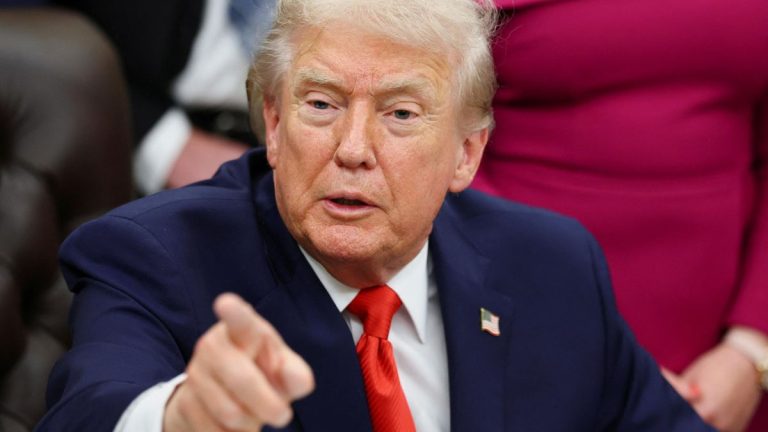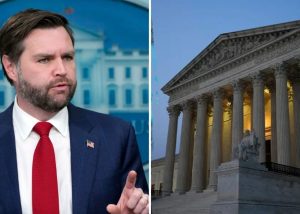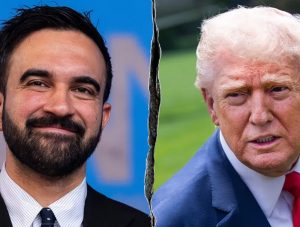Speaker Defends Decision Amid Arizona Election Controversy
House Speaker Mike Johnson is pushing back against Democratic criticism over his decision not to immediately seat Arizona Democrat Adelita Grijalva, calling the uproar a “manufactured controversy” meant to distract from what he describes as Democrats’ failed handling of the government shutdown.
In a wide-ranging interview with The Wall Street Journal’s Kim Strassel, the Louisiana Republican dismissed allegations that he was deliberately delaying Grijalva’s swearing-in, saying he is simply following House precedent — a precedent established under former Speaker Nancy Pelosi.
Background: Arizona’s Special Election
Adelita Grijalva, daughter of the late Congressman Raul Grijalva, won a September 23rd special election to fill her father’s vacant seat. Her victory came while Congress was not in regular session due to the ongoing shutdown standoff.
Democrats quickly demanded that Johnson seat her immediately, even during what is known as a pro forma session — short, procedural meetings held without formal legislative business.
When Johnson declined, Democrats accused him of intentionally blocking her from joining the chamber, with some speculating it was connected to a discharge petition involving the release of the Jeffrey Epstein files.
Johnson: “It’s Total Absurdity”
Johnson has rejected those accusations in strong terms.
“It’s total absurdity. What you’re seeing is the art of distractions. It’s a red herring,” Johnson said, emphasizing that the issue is being blown out of proportion for political gain.
According to Johnson, Democrats are focusing on the Grijalva controversy to divert public attention from their handling of the government shutdown and their broader legislative record.
“They don’t have a leader. They don’t have a platform. They have no policies they can articulate,” Johnson told Strassel. “They aren’t even able to say what they want to get out of the shutdown, other than spending a trillion and a half new dollars and giving 200 billion in healthcare to illegal aliens — on the back of U.S. taxpayers.”
Johnson said the Democratic proposal “wasn’t serious,” and that they “know we’re not doing that.”
WATCH:
“The Art of Distractions”
The Speaker accused Democrats of engaging in “political theater” to shift blame for the shutdown.
“They’re being blamed rightfully for the chaos that’s ensued,” Johnson said. “So they’re looking for distractions. They’ve latched onto this thing about Rep.-elect Grijalva. It’s total and utter nonsense.”
He added that he’s had to explain the issue repeatedly during press conferences, saying it’s a sign Democrats have run out of arguments.
“When that’s the issue of the day, you know they have nothing to argue about,” Johnson said.
When Will Grijalva Be Seated?
Johnson emphasized that Grijalva will be sworn in as soon as the House returns to legislative session — and not before.
“She was elected September 23rd in a special election to fill her father’s seat,” Johnson explained. “The important thing about that date is, we were already out of session. We’ve not been back to legislative session since then.”
He continued: “I’ve told her, and I’ve told all my Democrat colleagues, I’m happy to administer the oath to her as soon as we get back to legislative session — as soon as Chuck Schumer, and the two Democrat senators from her state, Mark Kelly and Ruben Gallego, vote to reopen the government. We’ll do it on the first day we’re back.”
The ‘Pelosi Rule’
Johnson said his decision follows the same procedure that former Speaker Nancy Pelosi used in a similar situation involving Republican Congresswoman Julia Letlow of Louisiana.
“I’m following the Pelosi precedent on this,” Johnson said. “When Julia Letlow was elected in a very similar circumstance — tragically after her husband, Luke, passed away from COVID — Speaker Pelosi took 25 days to administer her the oath.”
Johnson noted that Republicans didn’t protest or create viral videos during that period, recognizing that the delay was procedural.
“We didn’t have protests or go doing TikTok videos about it because we understood that’s just the way the process works,” Johnson said.
Democrats React
Democrats, however, have not accepted that explanation. Several Arizona officials have threatened litigation to force the Speaker to seat Grijalva, arguing that voters in her district are being denied representation during a crucial legislative moment.
Party leaders have accused Johnson of hypocrisy and political obstruction. One Democratic lawmaker claimed the delay was “an intentional attempt to silence Arizona voters.”
But Republican leadership insists the precedent is clear and nonpartisan.
A senior GOP aide told reporters, “Speaker Johnson is applying the same standard Democrats used when they held the gavel. If they were fine with Pelosi’s decision then, they can’t suddenly object now just because it’s politically convenient.”
Shutdown Still the Main Focus
Beyond the controversy, Johnson stressed that his main focus remains ending the government shutdown responsibly.
He argued that Democrats are trying to “score political points” instead of negotiating in good faith.
“Our priority is getting the government reopened without adding trillions to the national debt,” Johnson said. “The American people are tired of Washington games. They want accountability, not more spending.”
Republicans are pressing for a series of spending reforms before agreeing to a full reopening. Democrats, meanwhile, are pushing for what Johnson describes as “a blank check approach,” demanding new funding levels he says the country “simply cannot afford.”
Echoes of Past Showdowns
This isn’t the first time a Speaker’s procedural decision has sparked outrage.
In 2021, Speaker Pelosi faced similar criticism for delaying the swearing-in of Rep. Letlow after her special election victory. At the time, Republicans refrained from attacking her decision, saying it followed standard operating procedure.
Now, Johnson is using that history to underscore what he calls “Democratic double standards.”
“Pelosi did the exact same thing,” Johnson said. “Nobody accused her of voter suppression. But now, because it’s politically useful, they’re pretending this is some unprecedented move. It’s not.”
Public Reaction and Broader Implications
The controversy has reignited debate about how Congress handles special elections during procedural recesses — a technical area rarely discussed outside of Washington.
Some legal experts note that while the Speaker has discretion over administrative functions like oath ceremonies, any prolonged delay could be politically costly.
Still, others argue that the uproar underscores a deeper issue: the growing partisan tendency to turn every procedural disagreement into a political battle.
“This is a good example of how even routine matters have become polarized,” said one congressional historian. “In the past, a delay like this wouldn’t have drawn headlines. But today, both sides see an opportunity to rally their bases.”
Johnson’s Broader Strategy
For Johnson, who has faced his share of internal GOP challenges, the situation offers a chance to project steadiness and adherence to principle.
Supporters within his caucus say his handling of the Grijalva issue shows discipline and a refusal to bend under political pressure.
“He’s calm, factual, and consistent,” said one Republican lawmaker. “He’s reminding people that rules apply to everyone — even when it’s inconvenient.”
As the Speaker continues navigating the shutdown and intra-party tensions, allies believe his message of procedural fairness could resonate beyond Capitol Hill.
“He’s playing the long game,” the lawmaker added. “If voters see him as fair and principled, that helps us all.”
What Comes Next
With Congress expected to reconvene once negotiations over the shutdown advance, Johnson reiterated that Grijalva will be sworn in immediately when normal business resumes.
Until then, he says, Democrats are using the issue to “avoid accountability” for the ongoing funding stalemate.
“When the government reopens, we’ll seat her on the first day,” Johnson said. “That’s always been the plan.”
As partisan tensions simmer, the Speaker insists he’s focused on governing — not political spectacle.

James Jenkins is a celebrated Pulitzer Prize-winning author whose work has reshaped the way readers think about social justice and human rights in America. Raised in Atlanta, Georgia, James grew up in a community that instilled in him both resilience and a strong sense of responsibility toward others. After studying political science and creative writing at Howard University, he worked as a journalist covering civil rights issues before dedicating himself fully to fiction. His novels are known for their sharp, empathetic portraits of marginalized communities and for weaving personal stories with broader political realities. Jenkins’s breakout novel, Shadows of Freedom, won national acclaim for its unflinching look at systemic inequality, while his more recent works explore themes of identity, resilience, and the fight for dignity in the face of oppression. Beyond his novels, James is an active public speaker, lecturing at universities and participating in nonprofit initiatives that support literacy and community empowerment. He believes that storytelling is a way to preserve history and inspire change. When not writing, James enjoys jazz music, mentoring young writers, and traveling with his family to explore cultures and stories around the world.









